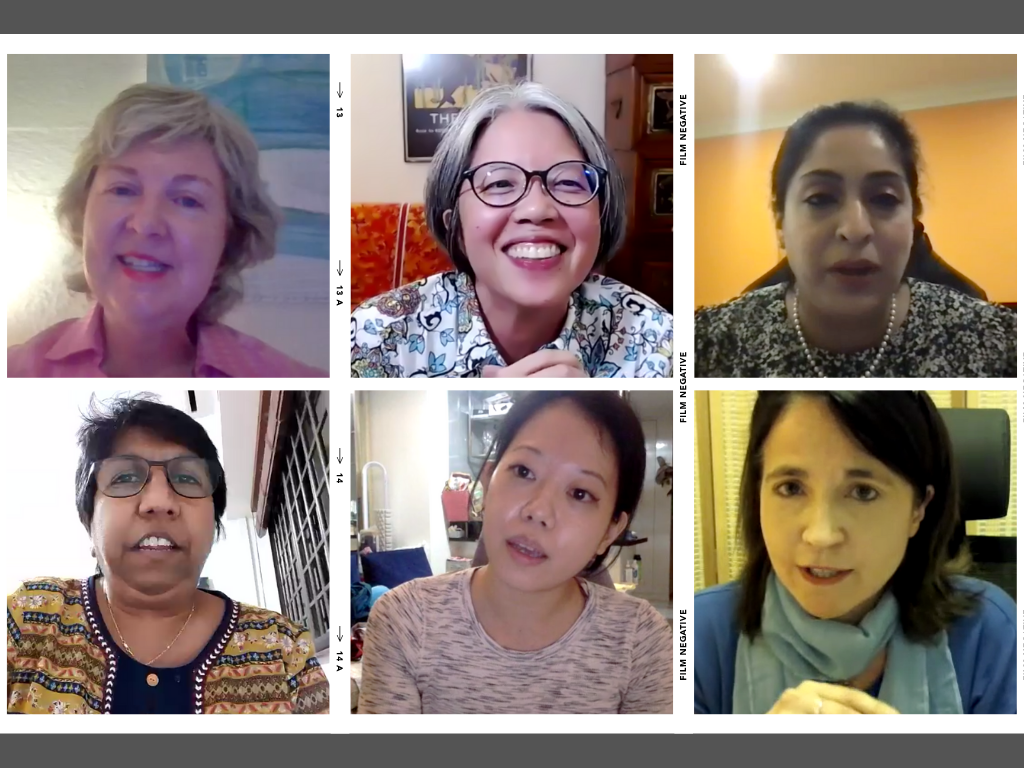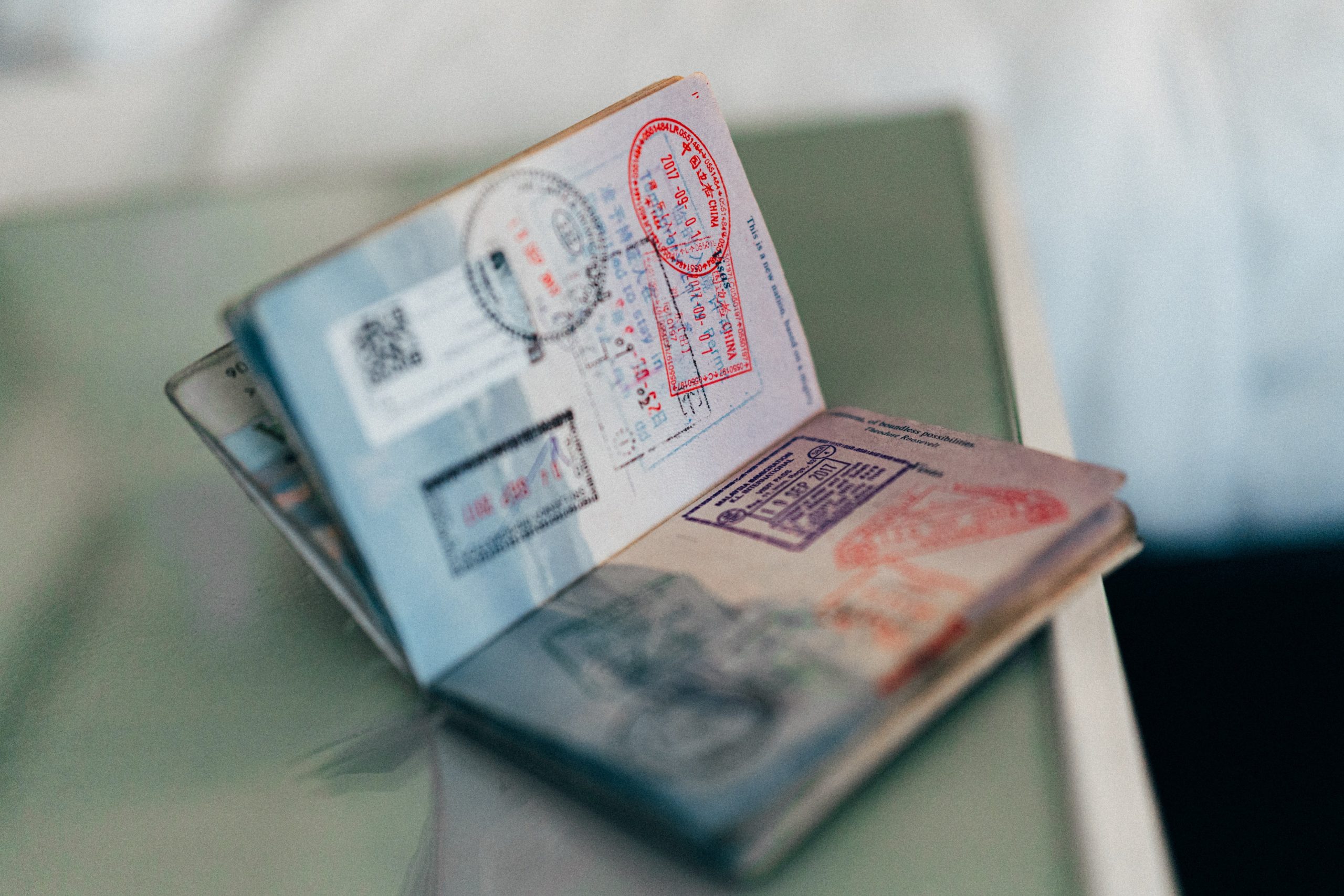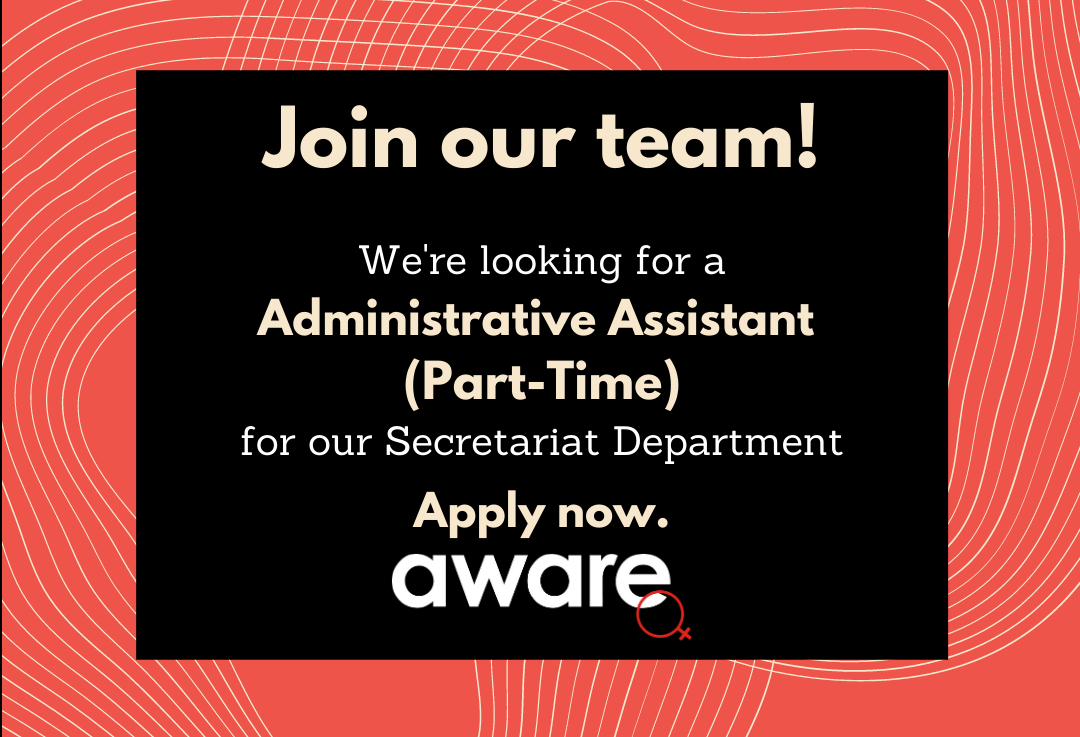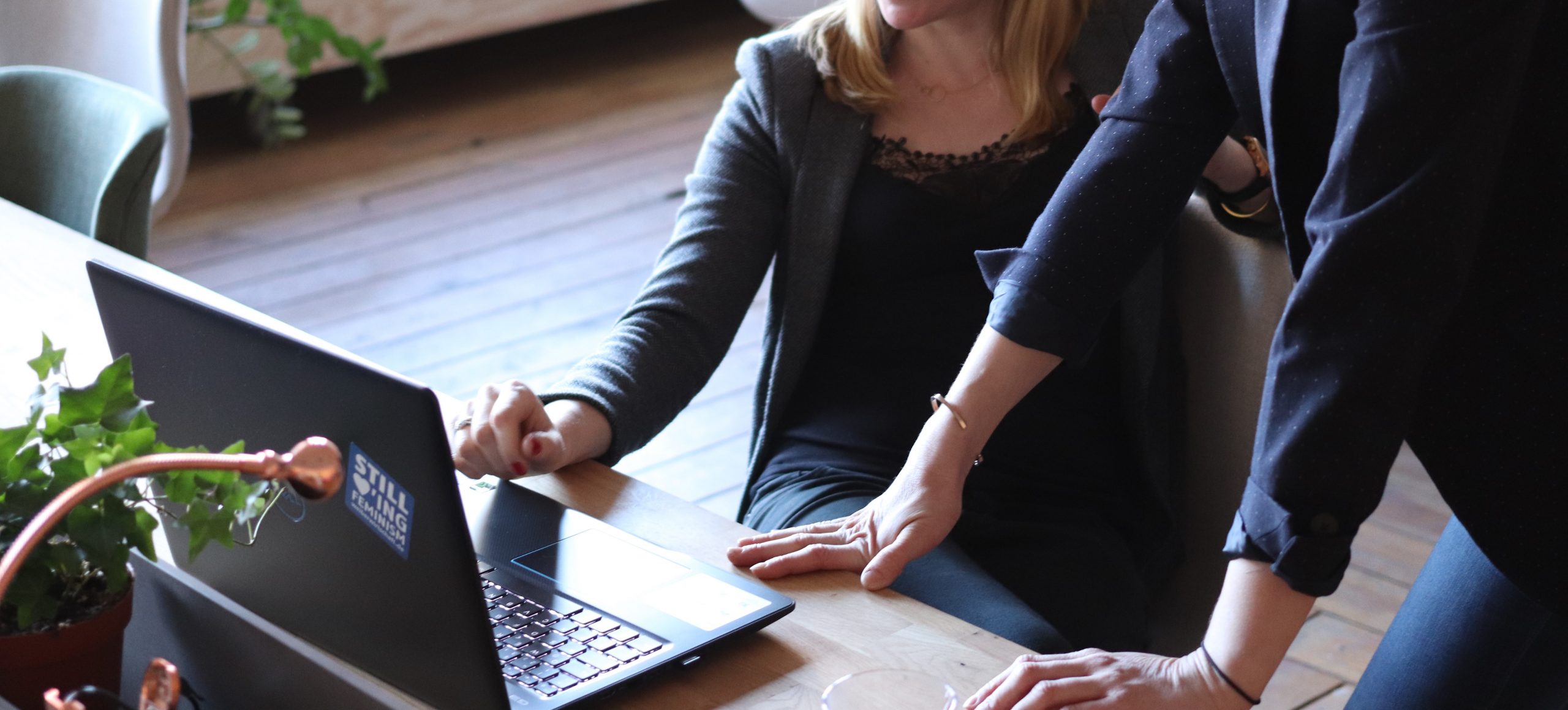written by Antara Dasgupta and Daneel Jannae Shih
On 10 February 2021, AWARE and Catalyse hosted the virtual event “Are Our Workplaces Safe Spaces?”, with the support of Otis Elevator Company and The Asia Foundation, and more than 90 people attending over Zoom.
The event commenced with opening remarks from AWARE Treasurer Aarathi Arumugam, followed by Karine Scelles, Otis’s Asia-Pacific Executive HR director. In her short address, Karine emphasised Otis’s commitment to diversity, equity and inclusion at the workplace, which goes hand in hand with adopting a “zero-tolerance policy” for bullying or harassment of all kinds, and encouraging employees to speak up about such situations.
Then, the main event began. Leading the discussion was moderator Jane Sloane of The Asia Foundation. Her conversation partners were Chen Xuan (a.k.a. Georgia), a survivor of workplace sexual harassment during her career as a management consultant and organisational developer; Amarjit Kaur, a partner at Withers KhattarWong LLP; K Thanaletchimi (Thana), Vice President of the Central Committee at National Trade Union Congress (NTUC); and AWARE Executive Director Corinna Lim.
Understanding the Singaporean Landscape
Corinna started off by outlining the recent nationally representative survey on workplace sexual harassment in Singapore, conducted by AWARE and Ipsos. She noted that among the 1,000 individuals surveyed, only 1 in 5 initially stated that they had experienced sexual harassment at work per the definition employed in the Tripartite Advisory, but when specific behaviours, such as unwarranted obscene images and sexualised comments, were included, 2 in 5 indicated that they had experienced them.
These were eye-opening findings, said Corinna, marking “the first time that we’ve had a feel of just how prevalent workplace sexual harassment is in Singapore… there is a major gap in the understanding of what constitutes sexual harassment.”
Corinna and Thana then described how the high prevalence of sexual harassment, coupled with low reporting (as the survey had also found), perpetuated a dangerous cycle. Survivors chose not to report their harassment due to a plethora of reasons: fear of retribution, structural issues and the notion that their experiences were “not serious enough”.
Lawyer Amarjit Kaur added that Singapore has no specific workplace harassment law, and while there is a Protection from Harassment Act, along with the Workplace Safety and Health Act, “there is a need for more targeted legislation that holds organisations accountable.”
Georgia then shared, in detail that was difficult to hear, her own experiences with workplace sexual harassment at multiple multinational corporations. Her stories vividly drove home the mental anguish faced by survivors: “After the third incidence of workplace sexual harassment, I remember feeling, ‘Why me? What am I doing wrong, is it just me, am I overreacting?’ Speaking up is exhausting, tiring and draining… but we need to speak up.”
She also brought up the dissonance between official workplace policies and practical implementation at her MNCs: “There’s this gray area that exists between what America has written and what actually gets implemented on the ground in Singapore… you find yourself slipping through those cracks.”
What are Organisations Doing about Workplace Sexual Harassment?
NTUC, Thana said, has been encouraging unionised companies to establish and enter a collective agreement where the employer, by law, must guarantee the establishment of a safe working environment, including proper protocols and procedures addressing workplace harassment. However, there is still a long way to go. Out of 930 collective agreements, only 20 have since included this specific clause in their agreements.
“We are pushing for more unions to establish this as a legally binding clause in a collective agreement,” Thana said. “We are also pushing for employers to have [stronger] policies and escalating procedures.” When asked about non-union workers, she replied that NTUC provides the same level of support to non-union workers; they are encouraged to report through the NTUC hotline, as well as TAFEP channels.
One other resource for workers, of course, is AWARE’s Workplace Harassment and Discrimination Advisory, which has been running since late 2019, providing guidance and support on individual rights and next steps. “We will walk them through all of the options, both legal options as well as HR, practical options,” said Corinna. “We are very survivor-centric: What is it that they want to achieve? What would make them feel better, more empowered, OK about the situation?”
For corporations who require help tackling harassment, Corinna mentioned Catalyse’s work training HR teams and managers to be empathetic first responders.
Amarjit recounted her recent experience representing a survivor of workplace sexual harassment, who eventually received a 34-month salary settlement. Corinna commended her for achieving that “landmark settlement”, which Amarjit agreed was “quite phenomenal, given that we struggle to get one to three months on a good day… [this was] successful insofar as one can be successful in these circumstances.” However, Amarjit also noted the unique set of circumstances surrounding that particular case (which had included wrongful dismissal as well), and added that contrary to popular belief, compensation is not an easy fix: “Even after all of that, my client came to me and she said, ‘OK, so now what? How do I deal with a mental anguish that still plagues me?'” Instead, Amarjit stressed, we have to remember that “prevention is key”.
Legislative and Social Norms Need to Evolve
So how can individuals can be agents of change in preventing workplace sexual harassment?
Georgia spoke about her belief that reporting incidents can help to prevent future victims falling prey to perpetrators. She then gave advice, based on her own experiences, on how employees can best pressure management to take more active steps against workplace harassment: “There are certain decision makers whose voices really count. Get close to them and figure out how to get them listening… in times where nothing’s happened yet, I do my best to jump through the hoops and I perform, because when I finally do speak up, I know people are going to listen.”
During a short interval, Jane invited Ritika Dutt, founder of Canada-based tech company Botler AI, to speak from the “floor”. Ritika explained how Botler was using artificial intelligence to tackle sexual harassment cases in Canada: “The AI asks the user a series of trauma-informed and adaptive questions to really better understand and extract details on the situation that they have faced… to detect if there had been any specific violations based on the applicable law.” After the relevant laws are identified and explained to the survivor, Botler then refers them to services and legal support providers. Ritika pointed out that such technology, being free, can help survivors “regardless of their income, or immigration status, or any of the other kind of traditional barriers that you may have to accessing certain services”.
After addressing a few questions from the audience, Jane asked the panellists for final statements.
Corinna said, “You can’t do this alone. If you’re going through an experience where you have been disrespected, or you have been harassed—whether it’s the union or a friend in the workplace, WHDA of AWARE, it’s really important to get some support, practical advice, legal advice.”
Amarjit urged higher-level staff to do more: “If you hold a position of power in your organisation, please push them to put in place the policies the training, because that’s an essential starting point.”
With confidence, women can “create a movement”, said Thana.
Finally, Georgia ended with: “This is a marathon. It’s not a sprint. We’re all in it for the long haul.”








